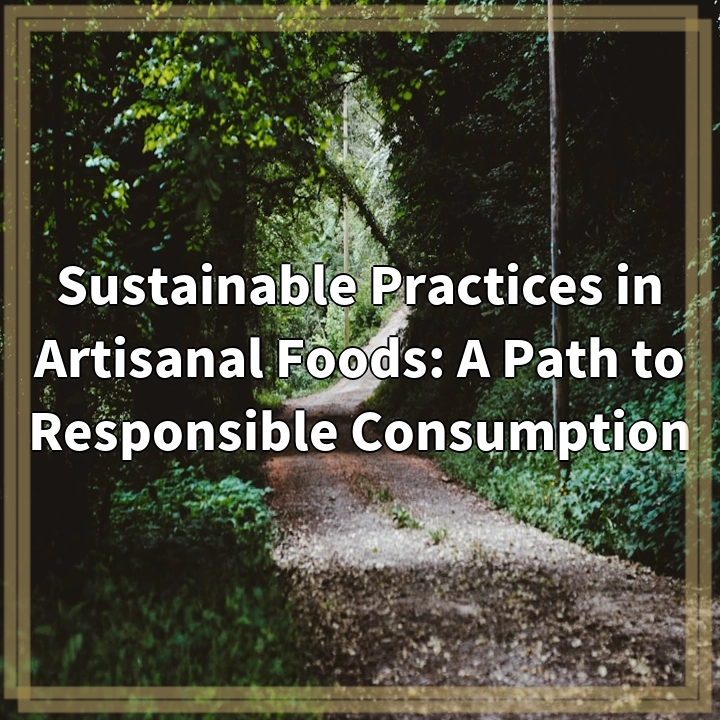
What it is:
Sustainable practices in artisanal foods refer to methods that prioritize environmental stewardship, social equity, and economic viability within the production and consumption of handcrafted food products. Artisanal foods are typically produced in small batches, often using traditional methods and high-quality, locally sourced ingredients. Emphasizing sustainability means that these practices aim to reduce waste, lower carbon footprints, and promote biodiversity while supporting local economies and communities.
Key Principles of Sustainable Artisanal Foods
1. **Locally Sourced Ingredients**: Sustainable artisanal food production often relies on ingredients sourced from local farms, reducing transportation emissions and fostering community relationships.
2. **Organic and Natural Methods**: Many artisanal producers opt for organic farming practices, avoiding synthetic pesticides and fertilizers to promote healthier ecosystems.
3. **Waste Reduction**: Implementing practices like composting, recycling, and efficient resource management helps minimize waste along the production chain.
Real-World Problems
While the movement towards sustainable practices in artisanal foods is growing, several challenges still persist:
1. Supply Chain Limitations
Many artisanal food producers may struggle to find a steady supply of high-quality ingredients that meet their sustainability criteria. Reliance on local farms can be hindered by seasonal variations, limited availability, and sometimes higher costs, which can affect product consistency.
2. Economic Viability
Artisanal food products often come at a premium price due to the higher costs associated with sustainable practices. This can make it challenging to compete with mass-produced alternatives, limiting market reach and accessibility for consumers.
3. Consumer Awareness and Education
Despite the increasing interest in sustainability, many consumers are still unaware of the benefits of artisanal foods and the importance of supporting sustainable practices. This lack of awareness can lead to lower demand for responsibly produced goods.
4. Certification and Regulation Challenges
Achieving certifications for organic or fair-trade practices can be a lengthy and costly process for small producers. Additionally, the absence of standardized regulations in artisan food production can lead to confusion and mistrust among consumers.
5. Environmental Impact of Scale
As demand for artisanal foods grows, there is a risk that some producers may compromise their sustainable practices to scale production. This could lead to negative environmental impacts akin to those seen in conventional food industries.
By understanding the challenges and realities of sustainable practices in artisanal foods, consumers can make more informed choices and support producers dedicated to responsible consumption.

Solutions for Promoting Sustainable Practices in Artisanal Foods
To address the challenges associated with sustainable practices in artisanal foods, several solutions can be implemented. These strategies can help support producers, raise consumer awareness, and create a more sustainable food system.
1. Strengthening Local Supply Chains
Building robust relationships with local farmers can help artisanal food producers secure a consistent supply of quality ingredients. Collaborative initiatives, such as community-supported agriculture (CSA) programs, can enhance local sourcing and encourage knowledge sharing.
2. Encouraging Economic Support and Fair Pricing
Advocating for fair pricing structures allows producers to cover the costs associated with sustainable practices. Consumers can support local artisans by being willing to pay a bit more for sustainably produced goods, thus ensuring the long-term viability of these practices.
3. Raising Consumer Awareness
Educational campaigns can inform consumers about the benefits of sustainable artisanal foods. Sharing information through social media, workshops, and community events can empower consumers to make conscious choices, fostering demand for responsibly sourced products.
4. Simplifying Certification Processes
Streamlining the certification processes for organic and fair-trade practices can alleviate burdens on small producers. Advocacy for clearer regulations and supporting organizations that help producers navigate these certifications can enhance credibility in the market.
5. Maintaining Authenticity While Scaling
Producers looking to expand should prioritize maintaining sustainable practices even as they scale. Implementing standardized procedures that align with their values and utilizing technology for efficiency can help ensure that growth does not compromise their commitment to sustainability.
By adopting these solutions, stakeholders in the artisanal food sector can work collaboratively to promote sustainable practices, ensuring that artisanal foods remain a viable and responsible choice for consumers.















